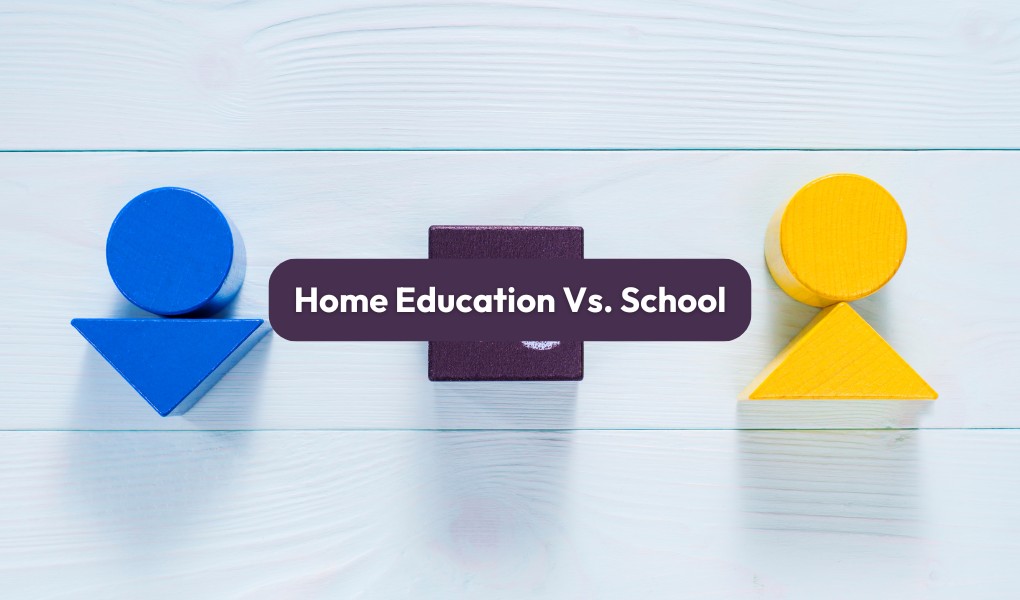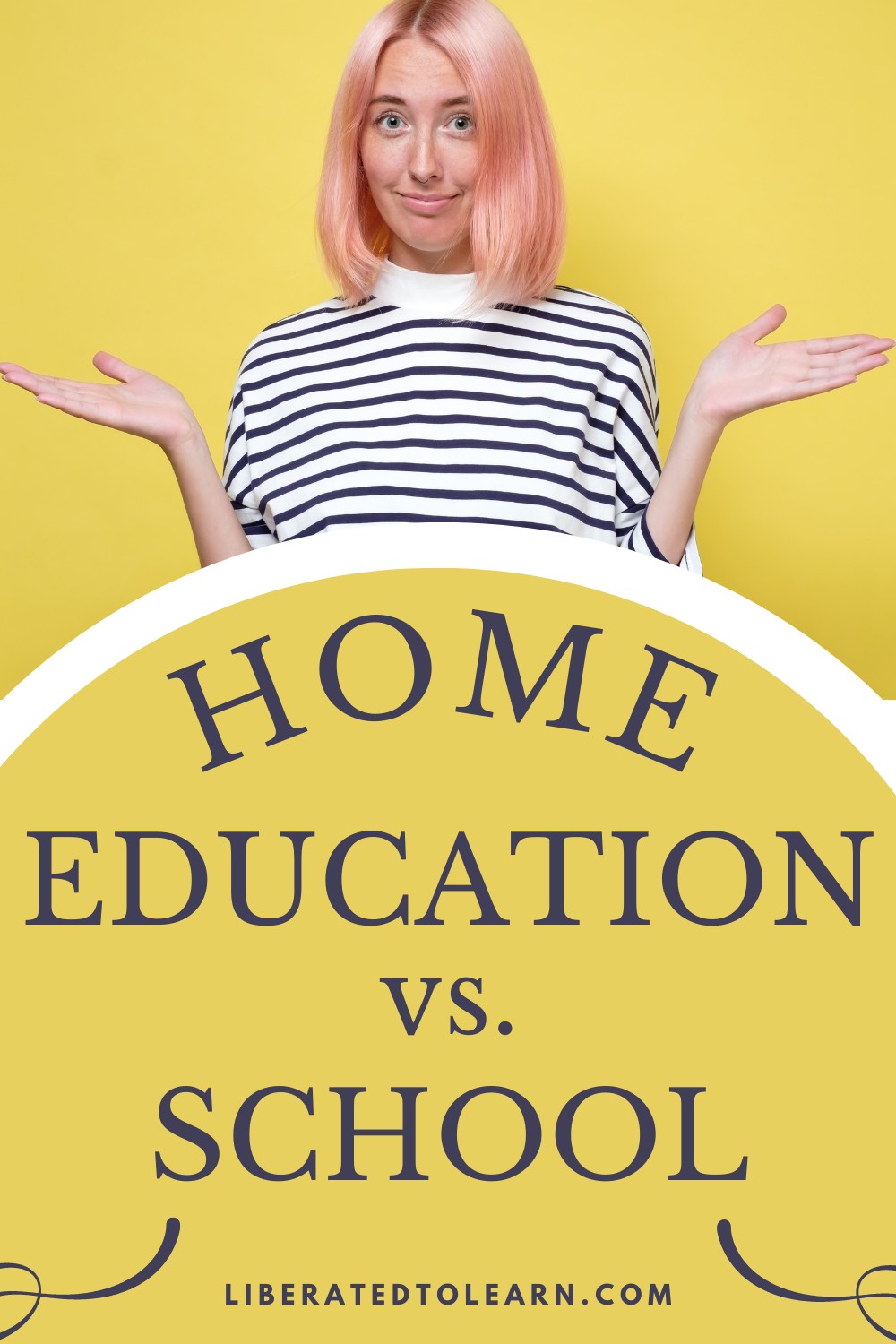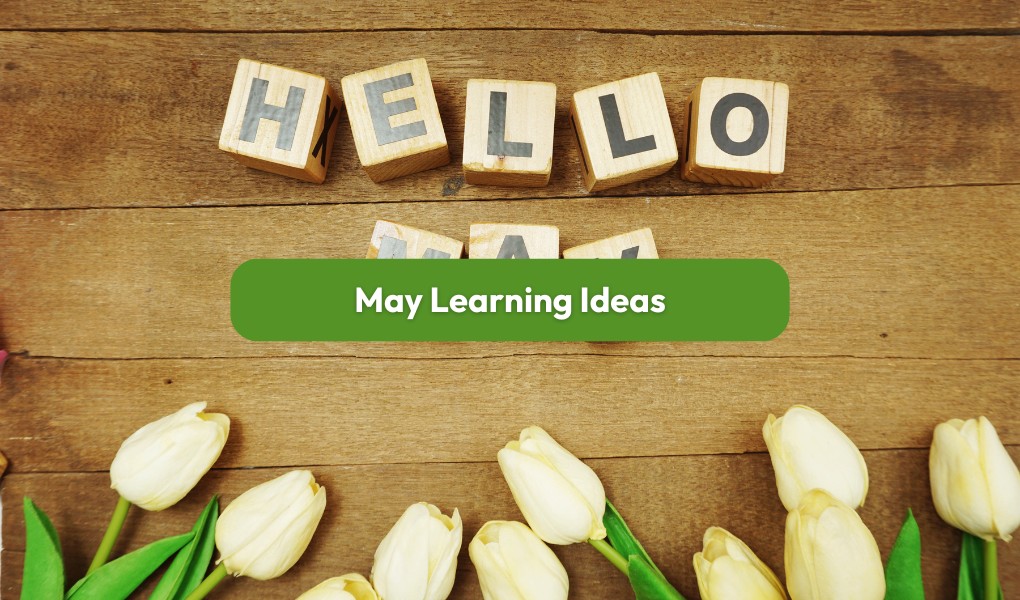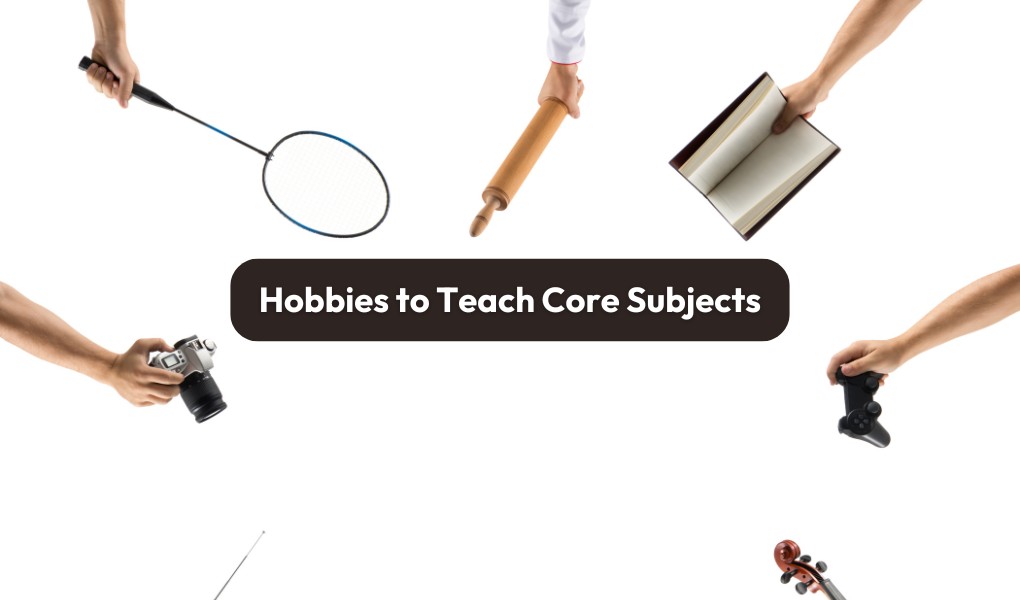To help you decide which choice is right for your child, we’ve rounded up the pros and cons of both school and home education. Let’s see how they compare!

Contents
You might be on the fence about home education and whether it’s better than traditional education (school). It’s perfectly normal to weigh your options up because you want your child to have the best education possible.
Will they be better off in a school setting with structure, around peers of the same age? Or will they thrive having the freedom to learn wherever and whenever? Well, to help you decide which choice is right for your child, we’ve rounded up the pros and cons of both school and home education. Let’s see how they compare!

What is Home Education?
You probably know the definition by now, especially if it’s something you’re looking into. What’s so appealing about home education is that it’s just that—educating at home. Well, not necessarily. It doesn’t have to be at home at all. It can be anywhere.
In terms of the history of home education, there was a mass movement in the 1970s after Jon Holt, an educational reformist, challenged formal education and called the classroom ‘oppressive.’ But if you think about it, home education — before it was even defined — was happening in our history long before school was an option for all children.
Nowadays, home education has become increasingly popular, especially since the Covid-19 pandemic, and its popularity continues to grow. So, why might people be choosing to home educate over sending their children to a public school? Let’s look at the pros of home education!
Pros of Home Education
1. Flexibility with learning
Home education is as flexible as you want it to be. There are no set rules when it comes to schedules, how children learn and what they learn. In fact, if your child only learns best in the evening then you can focus on their learning at this time. If your child is interested in one topic and not another, they’re able to do the one that interests them. What they learn and how they learn is completely down to your decisions as a family.
2. Flexibility with holidays
You won’t have to worry about pulling your children out of school and getting in trouble or having to pay a lot more money to go away during the school holidays. Here comes the freedom and flexibility of getting to go on holiday at any time of year!
3. Children learn at their own pace
Unlike in a public school, home educated children don’t have to work at the same pace as their peers and feel like they all need to be at the same level. What’s great about children learning at their own pace is that they are much happier and feel less stressed about having to do something.
4. Child-led learning
As well as learning at their own pace, home educated children are encouraged to follow their interests and make their own decisions about their learning. This motivates them to want to learn and also gives them much more responsibility.
5. Personalised, one-on-one learning
Instead of being in a classroom of thirty students, home educated children get the benefit of one-on-one learning, which is personalised to them. They don’t have to struggle in silence or feel like they’re falling behind. Instead, you as a parent/carer or a tutor can give your full attention and guide them in their learning.
6. Reduced peer pressure and bullying
Because home educated children aren’t constantly surrounded by the same children every day, they’re less likely to feel peer-pressured or experience bullying. If it does happen, it can be dealt with much more effectively.
7. Less stress
There’s less stress for both parents/carers and children. Adults do not have to worry about getting their children to school on time or any school-related issues, and children do not have to worry about keeping up with their peers, achieving certain grades, doing exams and learning about things because they’re told to. Home education creates a much more relaxed environment where the focus is on being happy and learning.
8. More family time
The great thing about home education is how much extra family time you get to spend together. The time that you would have missed out on if your children had been at school can now be spent doing exactly what you want together and enjoying even the smallest moments of it.
9. Encourages a love for learning
When children are encouraged to follow their interests, they are sparked with a motivation and love for learning. Think about how encouraged and eager you are to do something that you really enjoy — that’s exactly what it’s like for home educated children, and they get to learn in the way that best suits them.
10. Better emotional well-being
Home educated children experience real-life scenarios more regularly and can therefore deal with them better. In general, they are much happier and thrive doing the things that they love without the restrictions that school would put on them. With less pressure and stress, children are emotionally better off and can focus on more positive influences.
Cons of Home Education
1. Cost
The cost of home education can be more expensive than school. There’s the cost of supplies, extracurricular activities and clubs, curriculums, tutors, days out and even exams — all of which can add up for people on a tight budget. Some home educators might not be able to afford some of these which mean their children miss out.
2. Work and other commitments
Some people may struggle to fit home education around their work and other commitments, leaving little time to commit to learning. It can also be overwhelming and many might find that they are juggling too much at once or unable to make it work in their schedules.
3. Finding extracurricular activities
It’s not always easy finding extracurricular activities for home educated children and many clubs run after school hours, meaning home educated families might be restricted about what they can do during the day.
4. More difficulty with further education
Home educated children may face more difficulty applying for further education because they do not receive as much guidance with the process as they would at school. Parents/carers might not know the process well enough to assist their children and give them the best chance, so it can make applying to a university or college a lot more stressful.
5. Lack of friends
Limited socialisation can lead to children having a lack of friends. If they’re not mixing in different groups and meeting new people, they may find it harder to interact and build connections. This can lead to isolation, which is even more difficult.
6. Motivation and behaviour issues
Being in the comfort of their own home, it can prove more difficult to motivate your children to learn, especially when there are lots of distractions around. There’s also the issue of behaviour. Children can test the boundaries more at home than they can at school and this can be more stressful for parents/carers.
7. Dealing with judgement and disapproval from others
It’s not easy dealing with the judgement and disapproving looks and comments that come when you tell people you are home educating. It can be tiring and frustrating answering questions or feeling like you’re under scrutiny for your choices. Seeds of doubt can easily be placed in your mind and then you start to question everything.

Traditional Education (School)
Traditional education refers to the techniques and upheld traditions of learning which we see in a school environment. The teacher leads the learning, there are structured schedules and lesson plans, and rules and regulations.
The history of school has made it what it is today and it’s pretty much become an expectation that children would attend a school once they reach compulsory school age.
Pros of School
1. Socialisation
A school encourages socialisation because children are put with their peers for six hours a day. This sees the creation of friendships which can last past school.
2. Having structure and routine
Traditional education is all about structure and routine, which is useful for children to learn as they grow into adults. It can help them to get things done and be better organised. Without structured lessons and schedules, there is instability and more chances of procrastination.
3. Career opportunities
Children are supported throughout school to go after a career. They are offered opportunities, such as work placements, to help them transition from education to work. These experiences help to mould children into adults and prepare them. It also enables them to see which career is right for them.
4. Further education
Schools have more resources to support those applying for further education, from applying to colleges and universities to writing a personal statement. Although the process can still be stressful, teachers can help and make it a little easier for students.
Cons of School
1. One size has to fit all
In a school, everyone must do the same, regardless of whether they want to or not. They are told what to learn and how to learn it, and despite people being of different abilities, they are expected to get the best grades.
2. More regimented
Schools are a lot more regimented. There are rules to follow and times to keep to, and for children this control just isn’t natural. They are restricted by what they can and can’t do, which often results in students trying to rebel against it.
3. Stress and pressure
Children are put under a lot of pressure in school. Taking exams is not only stressful for those who are academic, but even more so for those who aren’t. When students are encouraged to achieve the highest grade possible, this puts a lot of pressure on them to perform well, and if they don’t live up to expectations they feel like a failure.
4. Have to follow a curriculum
Schools impose curriculums as a way of teaching children what they ‘need to know’ but this isn’t going to suit everyone. Unfortunately, there isn’t much choice when it comes to learning by traditional education and students just have to learn what they are told.
5. Restricts creativity
There’s not much room for creativity when children are told what they should be learning and how to do it. Even if it’s something that seems creative, there are limitations to what they can do and expectations of what it should be like.
6. Not much focus on life skills
It’s strange that school does not set children up for challenges in the real world, like debt and managing money or paying taxes. There’s little focus on what skills are actually needed in life and so many young adults leave school having to figure out how to get through adulthood.
7. Bullying and peer pressure
When you’re surrounded by the same people every day, there’s bound to be conflict. Bullying and peer pressure is sadly something that is all too common in schools and it’s not always picked up on or dealt with effectively.
Home Education and School Compared
When looking at the pros and cons of both home education and school, it’s clear that it will depend on each individual, their wants and needs, and what works best for the family as a whole.
Home education gives children much more freedom with their learning, but school might be better for those who want to do further education and are career-focused.
The best thing to do is to weigh up the pros and cons along with your family’s lifestyle and your values to see which option would be better. We’ve got a template just for you, where you can write down your own pros and cons to help you come to a decision.

m@liberated
Want more from Liberated to Learn?
Subscribe to stay updated about new posts, resources and giveaways!












